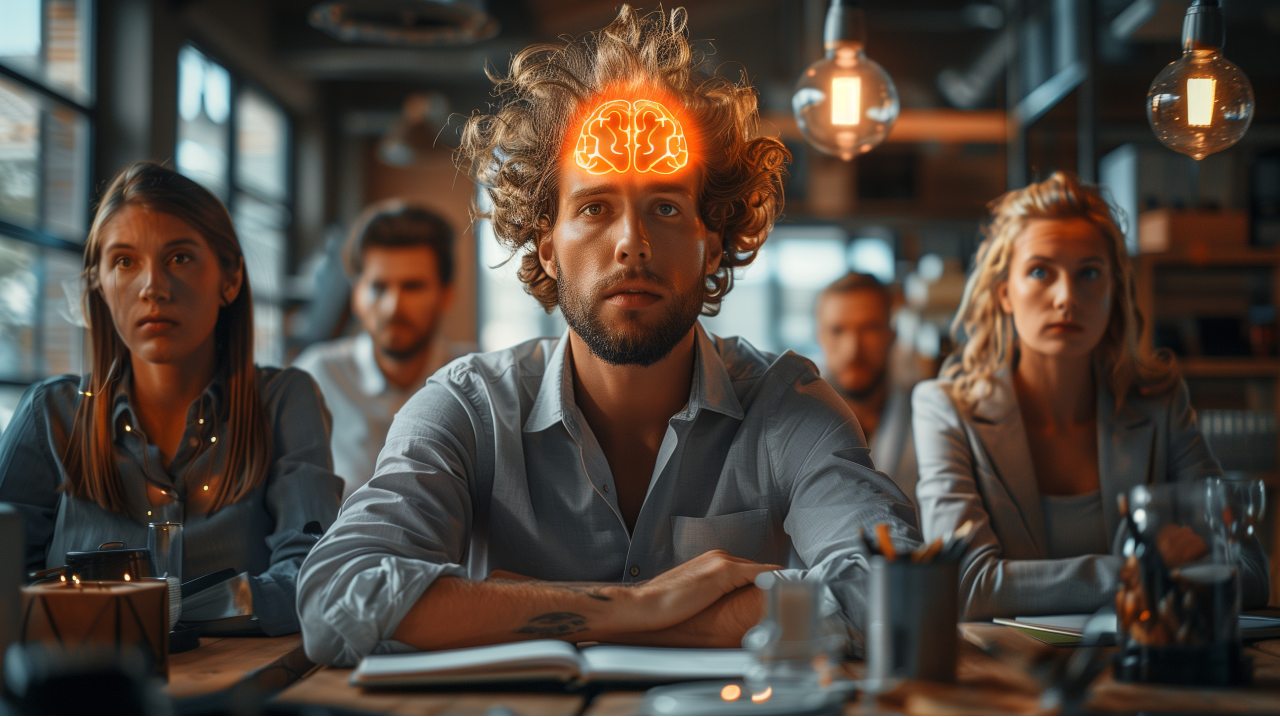Anxious and Untamed? How TMS Can Help When Traditional Treatments Fall Short
What if there was an FDA-approved, non-invasive treatment option for treatment-resistant major depressive disorder? A treatment option that allows you to sit peacefully in your therapist’s office for no more than 30 minutes AND get on with your day as usual? What if most insurance plans covered this treatment option and had a wildly successful efficacy rate? And what if you can find this treatment option close to home in the north Georgia area?
Does this sound too good to be true? Goolsby and Associates would like to introduce you to transcranial magnetic stimulation, a groundbreaking treatment option for those who have sought relief for their major depressive disorder symptoms through multiple medications and talk therapy, only to find their symptoms are not managed well.

What is major depressive disorder?
Major depressive disorder (MDD) is also known as clinical depression and requires a diagnosis from a medical professional. MDD differs from “down” days or depression due to life events such as the loss of a loved one or perhaps the loss of a job. There are certainly life events in which feelings of low mood are expected. There are even health concerns, such as low thyroid, which can contribute to feelings of sadness.
However, MDD differs from these in that it is persistent and interferes with the ability to function daily. For those suffering from MDD, which requires a clinical diagnosis, the criteria include but are not limited to a depressed mood lasting more than two weeks accompanied by other symptoms such as insomnia, fatigue, feelings of worthlessness, weight gain or loss, decreased concentration, and even thoughts of death or suicide.
What is considered traditional treatment for major depressive disorder?
Currently, the treatment protocol for major depressive disorder involves medication and therapy in some combination. For some, medication alone alleviates symptoms while for others talk therapy provided by a licensed mental health professional can yield results.
There are many mediations readily available for the treatment of MDD including SSRIs, SSNRIs, Atypical antidepressants such as Wellbutrin XL or Forfivo XL, Tricyclics, and MAOIs. Finding the right medication for you may take time and must be under the supervision of a licensed professional. Under no circumstances should you quit your medication unsupervised.
If you have tried at least 2 different forms of medication and used them correctly over an adequate time frame, generally speaking at least 8 weeks, and still have symptoms. You may be treatment resistant.
What does treatment resistant mean?
For many with MDD, a combination of medication and therapy offers a viable solution; however, for those who try at least two medicines of effective dosage over time and may or may not utilize talk therapy interventions that do not find relief from their major depression symptoms. These individuals may suffer from treatment-resistant depression.
The current belief is that at least 30% of those with major depressive disorder become treatment-resistant. While this is a staggering statistic, this does not mean that there are no alternative treatment methods that can help in alleviating symptoms associated with major depressive disorder. There is hope!
Transcranial Magnetic Stimulation may be a treatment option that can change your life
Transcranial magnetic stimulation works differently from mediation and has virtually no side effects. While antidepressants and classes of medications that can help with depression may yield positive effects, they often bring with them side effects such as weight gain, low sex drive, headaches, nausea, upset stomach, and more.
Transcranial magnetic stimulation (TMS) works differently than medications by using magnetic fields to encourage electrical activity in the areas of the brain associated with depression. The brain is alive with electrical activity, and for those suffering from depression, certain areas of the brain are “under” active. Utilizing a magnetic coil attached to the scalp, TMS uses a magnetic field to incite electrical activity in the brain in these under-functioning areas, creating new neural pathways over time.
In simplistic terms, it helps stimulate these low-activity regions of the brain that are associated with mood regulation and literally gives them more energy. In turn, your brain can create new pathways that allow for relief from depression. TMS is a targeted approach to treating MDD. TMS is also an incredibly personalized treatment approach and your clinician will vary intensity and duration based on your needs and your responses to treatment.
Because of the personalized approach to treatment that TMS offers, you can rest easy knowing that your practitioner is considering how each treatment session impacts you and adjusting every session to your individual needs. This is just one of the ways TMS differs from traditional medication. Medications work the same way for everyone but do not always yield the same results. TMS allows for treatment changes, giving you exactly what you need to treat your personal case.

Goolsby and Associates is here to help you find a solution through TMS
If you have gone the traditional route seeking relief from your major depressive disorder and wonder if there is a better way, please reach out to us. Here at Goolsby and Associates, we know how depression impacts the lives of so many and we believe we have a treatment option that can serve you.
Please contact our office today to set up a consultation. We can review your case and help you discern whether or not transcranial magnetic stimulation is a viable treatment option for you. We want to see you healthy and thriving.
